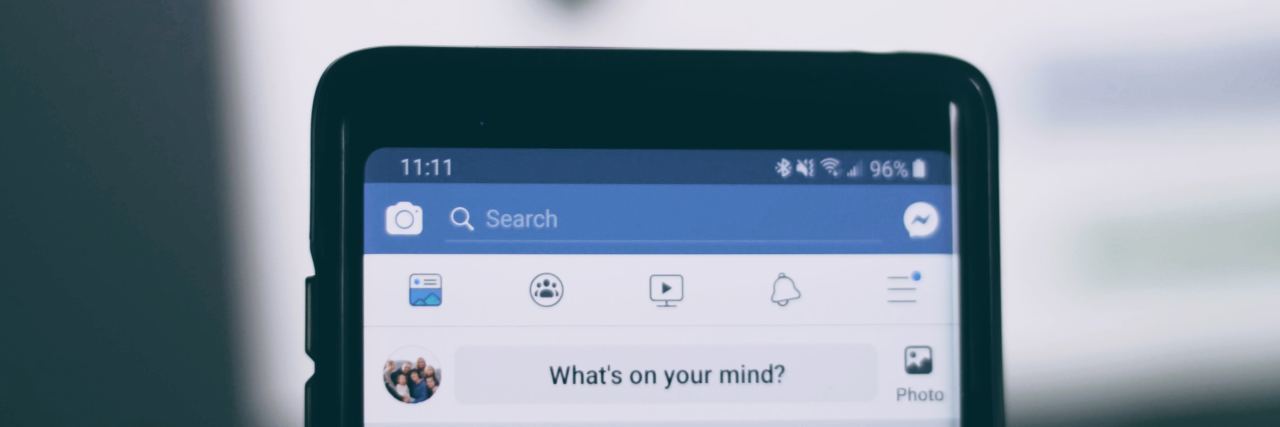While I maintain a Facebook page for my mental health and disability activism, I have decided to cease sharing the most intimate details of my chronic conditions on my personal Facebook. After being so open about my struggles, I gradually realized that my wide circle of acquaintances did not evince a genuine concern about my mental health. I had accepted so many ersatz friends over the years that the people who cared about the vicissitudes of my life were few compared to those I had “befriended” online.
Worse yet, in a troubling phenomenon known pejoratively as “grief porn,” people latch upon the traumas of others not because they truly care but due to what’s described as a frisson — a “thrill,” “a shudder of emotion” or “a passing sensation of excitement,” according to Dictionary.com. In other words, there is something voyeuristic about Facebook acquaintances’ reading about another’s mental illnesses; people are interested in drama for its own sake. They imbibe it like a real-life soap opera where they are living our experiences vicariously, yet where the bonds of friendship and emotional sensitivity may be conspicuously absent.
On Facebook, I’ve seen a corollary I’d dub “disability porn,” where “friends” share the lurid details of their conditions for popular consumption. One case on my own newsfeed concerns a woman with a mental illness who gave up her career in sex work to care for her disabled son. Day after day, she divulges her and her offspring’s trials and tribulations to the point where I become part of the web of her struggles. Unlike an actual comrade, however, I don’t have any emotions for her family. While it has thus far been unintentional, I must recognize that I am using the woman’s life story as a means of entertainment, to immerse myself in her life without actually having to experience the consequences of living it.
In recent months, I’ve concluded that many Facebook friendships amount to parasocial relationships — artificial bonds like the ones “ordinary” people share with celebrities they have never met. Unlike such relationships, where there is typically more than a small dose of adulation, in my Facebook “friendships” the actual emotional connection may be sparse. The majority of my acquaintances don’t know me as an individual; our relationships are mediated by the information I choose to share. While I’m sure some have truly formed emotional bonds with me, given the fragility of my mental health, I would much prefer to err on avoiding the risk of being the object of disability porn.
I used to form one-way connections with the people who reacted to my content on a regular basis. After all, I presumed that reading about my struggles with depression and difficulty contending with narcissists would cement our bonds of friendship. Or would it? That my Facebook acquaintances could have been using my tribulations as a means of entertainment — and that their “love” reaction meant that my life read like a made-for-TV thriller — was a concept I had never even contemplated until recently. Since so many people, myself included, thrive on the reactions to our content, the realization that others may not connect emotionally with my mental health struggles was as harrowing as it was unexpected. As a result, I am giving copious thought as to what I now post online and where.
To keep myself safe from being the object of disability porn, I am continuing to narrow the subject matter of my Facebook posts; for most of 2019, I have either shared pictures of my favorite animals or commentary about political affairs. Contrary to my own fears, keeping my mental health struggles out of the Facebook limelight has not meant loneliness; instead, I privately share the vicissitudes of my illnesses with my closest friends on Messenger. In point of fact, I still discuss my depression, post-traumatic stress disorder (PTSD) and panic disorder on other platforms where the goal is to help people with their issues. I also write for dedicated mental health blogs like The Mighty, where some larger point may be made about mental illness or disability itself. To my own dismay, I have seen myself using others as disability porn, so my New Year’s resolution is to not share anything about my mental health on my personal Facebook in 2020.
Photo by Joshua Hoehne on Unsplash

